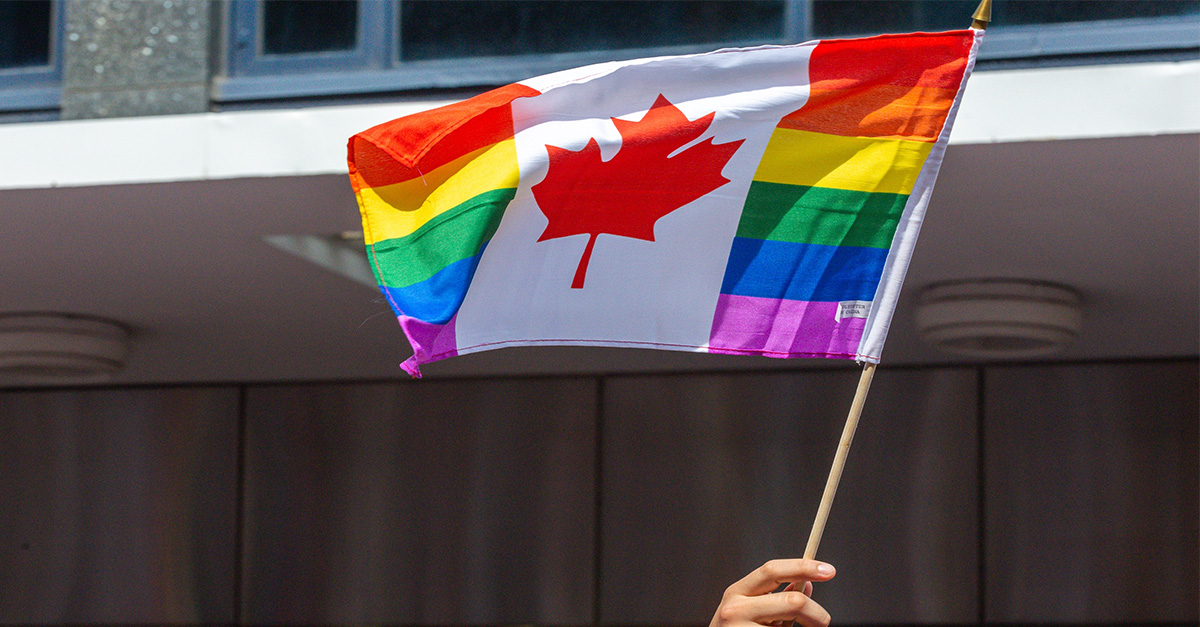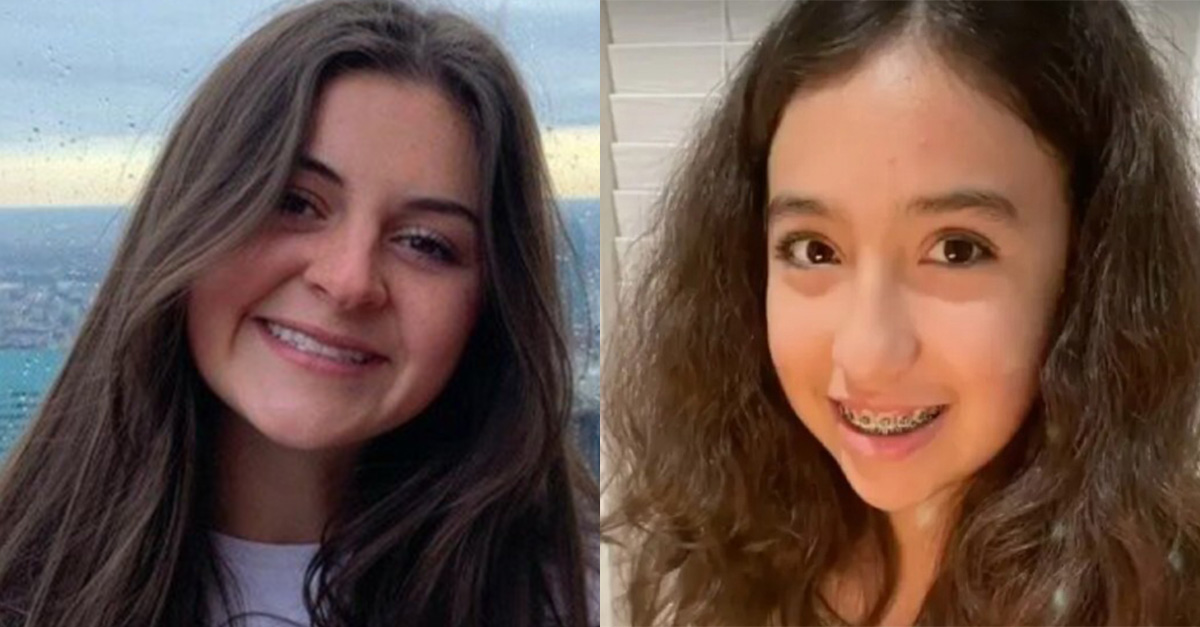


Get a free copy of Parental Rights & Education when you subscribe to our newsletter!

As this case shows, LGBTQ ideology has been clearly established as the new state religion of Canada, and those who refuse to follow its precepts, repeat its slogans, or display its symbols will be punished.
A Canadian town of 1300 people has been fined and its leaders ordered to undergo reeducation because it declined to declare June 2020 as 2SLGBTQIA+ Pride Month and to fly a pride flag, despite the small town having no flagpole.
Borderland Pride then asked Emo to “email us a copy of your proclamation or resolution once adopted and signed.”
For a variety of reasons, including having no established flag policy, the town councilors chose not to fly the pride flag by a vote of 3-2.
Borderland Pride then took legal action, claiming that the vote was an act of discrimination.
The legal battle continued into 2024. In April, Borderland Pride sent a letter to the town offering a “deal” in order to avoid the cost and the “national public relations tire fire” of the legal process. The letter noted the town’s financial difficulties, such as its need for private donations to keep the public library open. Borderland Pride demanded that the town agree to a settlement that included a published apology; financial compensation; diversity, equity, and inclusion training for the council; and a commitment to adopting Pride proclamations in the future.
The letter also said it would donate one-third of the settlement to the library if the town agreed to allow Borderland Pride to put on a drag queen story hour event on a date of the organization’s choosing.
The town refused Borderland Pride’s offer and the case went before the Ontario Human Rights Tribunal. Adjudicator Karen Dawson sided with Borderland Pride, claiming that though she found no evidence of discrimination by two of the three councilors who voted against the proclamation, a single comment by Mayor Harold McQuaker showed that his vote was based at least partly on discrimination against LGBT people.
At a council meeting McQuaker had been recorded saying, “There’s no flag being flown for the other side of the coin … there’s no flags being flown for the straight people”.
Dawson ruled that his comment “was on its face dismissive of Borderland Pride’s flag request and demonstrated a lack of understanding of the importance to Borderland Pride and other members of the LGBTQ2 community of the Pride flag. I find this remark was demeaning and disparaging of the LGBTQ2 community of which Borderland Pride is a member and therefore constituted discrimination under the Code.”
Dawson also cited the testimony of Dr. Emily Saewyc, a professor at the University of British Columbia’s School of Nursing, who said public comments by political figures that are supposedly discriminatory encourage the public to imitate that discriminatory speech.
As further evidence, Saewyc and Dawson claimed that public comments by President Donald Trump, Vice President Mike Pence, and members of Trump’s cabinet “visibly increased the amount of hate and violence publicly expressed by others who were strongly affiliated with Trump’s political views.”
Dawson argued that negative social media posts about Borderland Pride after the meeting were not because of their request but because of McQuaker’s comment.
She ruled that the town has to pay Borderland Pride $10,000, and McQuaker must pay $5,000. McQuaker and the town’s leaders are also ordered to complete the Ontario Human Rights Commission’s online course “Human Rights 101” and provide proof of completion to Borderland Pride within 30 days of the ruling.
Doug Judson, a lawyer and a director of the board of Borderland Pride, stated that the organization was seeking “validation that as 2SLGBTQA plus people, we’re entitled to treatment without discrimination when we try to seek services from our local government.”
Borderland Pride notes that two other Ontario towns, Hamilton and London, were also fined in 1995 for refusing to officially recognize Pride weekend.
A few months ago, Borderland Pride won a $35,000 small claims court judgment against a man who wrote that a Borderland drag show for all ages was a “pedophile show.”
After that ruling, Judson said that the organization needed “to push back on this type of attack with force and we need to impose consequences.”
“As a lawyer who does this work that means I’m going to start taking people’s houses and their vehicles and their toys and draining their bank accounts and garnishing their wages because no one is going to stop behaving this way until there are real consequences. Until there’s real financial pain that attaches to it,” he threatened.
“We’re going to keep doing that. Hopefully, the message will eventually get through that you have free expression, but that doesn’t mean freedom from consequences,” he stated.

Decisions like this show that contrary to Judson’s claim, you do not have free expression in Canada. In this case, a town was fined because it refused to express a particular message that Borderland Pride demanded it express. It made no hateful comments; it simply chose not to declare an entire month as Pride month.
What McQuaker said was correct. In fact, his statement was actually the opposite of discrimination. The government declaring a month to celebrate particular sexual orientations and transgender identification but not doing so for those who are heterosexual or don’t identify as a different gender from their sex is actually recognized in the law as viewpoint discrimination.
This is why the First Amendment’s safeguarding of free speech is so critical and why organizations must refuse to cave to the left’s insistence that free speech be limited or include consequences. If the government can fine you or jail you for your speech (or for refusing to say what they want you to say), you don’t have freedom of expression. At its core, freedom of expression means you have the right to speak, or not to speak, without fear of government punishment.
Let’s be clear on this, there is little difference in saying, “Fly the Pride flag or be fined” and “Hang a picture of Chairman Mao in your home or be executed.” Those who go around punishing people for disagreeing with LGBT ideology are just like China’s Red Guard, fanatically demanding that everyone validate them and their beliefs or face the consequences.
The LGBTQ ideology has been clearly established as the new state religion for Canada and much of the West, and those who disagree with any of its precepts now face the possibility of being thrown in jail, losing their job, being fined, or even losing custody of their children.
So who is really discriminating?
If you like this article and other content that helps you apply a biblical worldview to today’s politics and culture, consider making a donation here.

Notifications